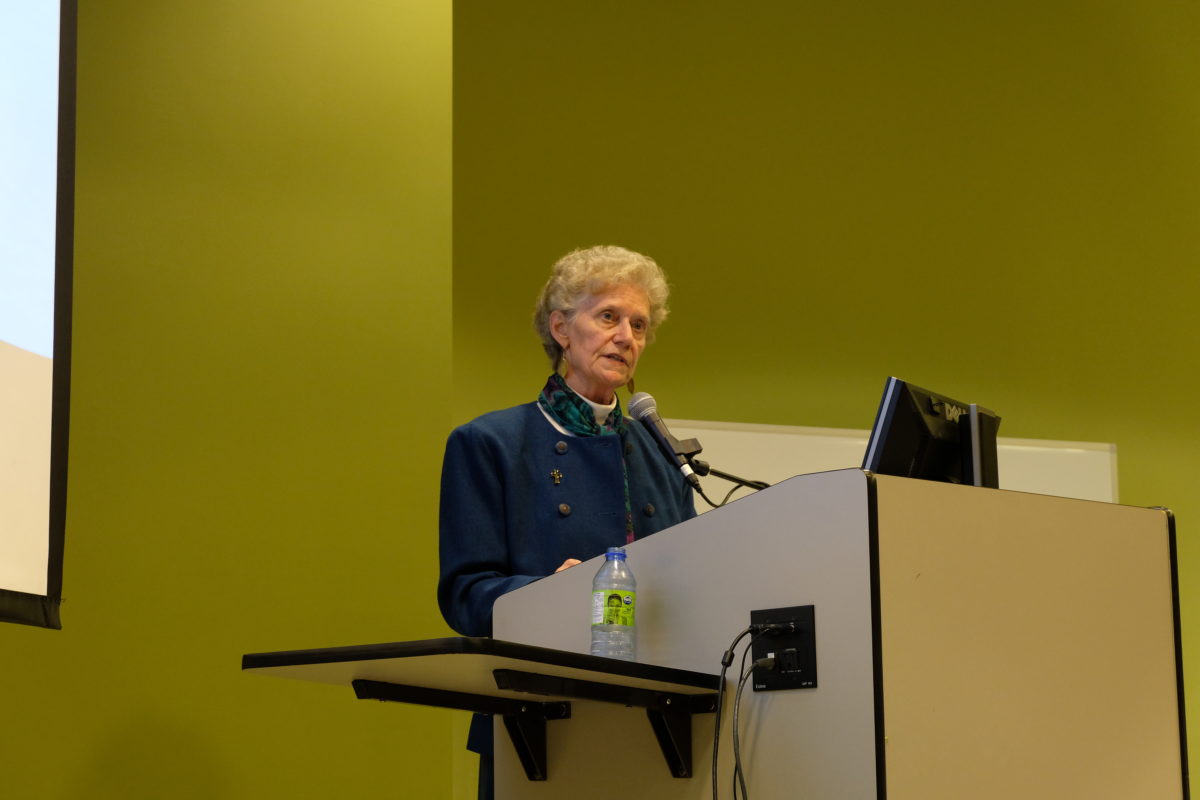Janet Ruffing, the professor in the practice of spirituality and ministerial leadership at Yale Divinity School, came to Brian Mulroney Hall last Thursday, Oct. 19, and gave a lecture on spiritual direction as a narrative process.
Ruffing’s mother is a storyteller, and she would tell young Janet her grandmother’s story. Ruffing believes that understanding ourselves through the story about us is the key to the narrative.
“Spiritual direction rarely alluded to the fact that spiritual direction itself is an inherently narrative process,” said Ruffing.
Ruffing said self-understanding is always partial and limited by the level of our maturity when we developed our core stories. She suggested we overlook or neglect the significance of actual events and our responses to them, and so we revise.
“This interdisciplinary world brought attention to the role of narratives in a formation of identity,” said Ruffing. “Our identities appear to be narrative creations. We make them up, and we rehearse them over our life times.”
During the lecture, Ruffing contrasted American nativism to the development of story telling. Although racism and white privilege have been inherited since colonial time, the understandings vary to many versions.
“I thought we have a standard curriculum,” said Ruffing. “We don’t. The history that has been taught is not the same.”
Jessica MacFarlane, a fourth-year gerontology student, found it refreshing to see new elements are discussed in the narrative study.
“I like the way it brought in spirituality that we don’t talk about in class,” said MacFarlane. “It’s nice to have a new spin on the concept that I have already learned.”
Peter Short, a retired church minister, learned how to question the quality of narrative between impoverished narrative and prosperous narrative.
“The concept of whose world we are living in is the essential mythic question that has a spiritual dimension,” said Short. “Whether you are an atheist, Christian or Buddhist, but that is not the point. The question is the essential beginning of our existence.”
From the perspective of spiritual direction, the conscious choices one makes define the character and the consistent experiences of how God’s grace and compassion move in and through one’s state of mind.
“The telling of our deepest relations, spiritual and existentially challenging experiences contribute to re-storying our identity narrative over time,” said Ruffing. “Today, that may include more conscious awareness of the influence or not of ancestry and landscapes on our spiritual and cultural identities.”

